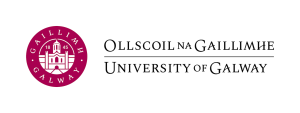Prof. Frederic Dias (UCD) has been awarded a second European Research Council (ERC) Advance Grant
 Prof. Frederic Dias (UCD) has been awarded a second European Research Council (ERC) Advance Grant, for the project entitled "HIGHWAVE" (Breaking of highly energetic waves).
Prof. Frederic Dias (UCD) has been awarded a second European Research Council (ERC) Advance Grant, for the project entitled "HIGHWAVE" (Breaking of highly energetic waves).
Prof. Dias is Professor at the School of Mathematics and Statistics, University College Dublin (UCD) where he leads the wave group. In 2012, he was awarded with his first advanced grant from the European Research Council to carry out research on extreme wave events. Later in 2014, he received a proof of concept grant from the ERC to work on wave measurement, and in 2019 was awarded with his second ERC advanced grant to research wave breaking. The key objectives of this new project are to develop an innovative approach to include accurate wave breaking physics into coupled sea state and ocean weather forecasting models and to develop new concepts in wave measurement with improved characterization of wave breaking using real-time instrumentation. Prof. Dias is recognized as a leader in the hydrodynamics wave research community and also a principal investigator with MaREI, the SFI Research Centre for Marine and Renewable Energy.
Prof. Dias and his group are very active ICHEC users since 2012 and have held numerous National Service Projects including 2 High-Impact Class A projects across different ICHEC HPC clusters (Stokes, Fionn and Kay). Furthermore, Prof. Dias's group and ICHEC maintain a strong collaboration in the optimisation and deploying of Ocean Wave codes in different architectures.
Commenting on the support received from ICHEC, Prof. Dias said: "ICHEC provides exactly what I am looking for, a team of highly qualified staff with a impressive level of expertise, state-of-the-art hardware and a project submission system which is designed to help scientists"
ERC Advanced Grants are designed to support excellent Principal Investigators pursuing ground-breaking and high-risk projects. ERC Advanced Grants entitle EU researcher for up to €2.5M to carry out their research.



